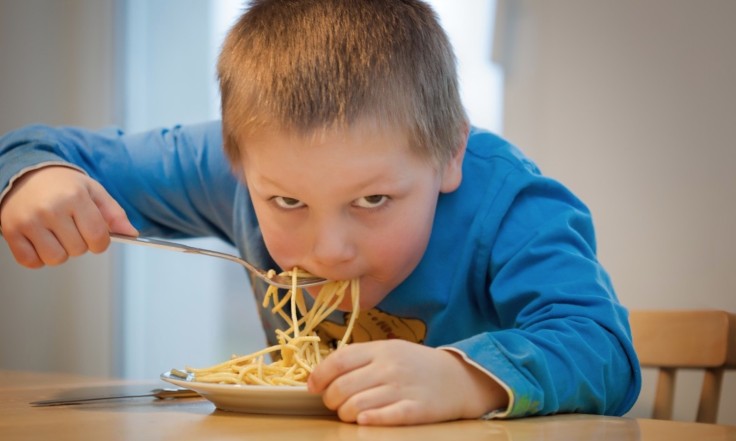
Children who eat fast are more likely to be impulsive and could develop eating behaviors that can lead to child obesity, according to a new study from the experts at the University at Buffalo and Children's Hospital of Philadelphia.
The research also indicated that kids who are responsive to food cues, such as the sight or aroma of food, are more likely to become frustrated and irritated if they cannot satisfy their urge to eat. These children apparently have not learned the ability to self-soothe their cravings.
According to the study's co-author, Dr. Myles Faith of the UB Graduate School of Education, their findings support previous researches that have tied child obesity to faster eating and responsiveness to food cues. Faith said that their discovery also suggested the importance of understanding a child's temperament in looking for solutions to help a growing number of children who are obese.
The expert said that few studies had been done to determine the relationship of temperament to child obesity when it is "linked to many child developmental and behavioral outcomes."
Observing Impulsiveness in Kids
Some 28 children, between the ages of 4 to 8 years old, with or without any obesity risk, took part in the study, which entailed an intervention to reduce how fast they eat. The experts also looked out for distinct facets that could impact the children's temperament based on internal or external food cues. They observed the responsiveness of the children to the feeling of fullness after eating.
From their experiment, the experts saw that the kids who were responding better to fullness after eating generally had more self-control. On the other hand, the children who were unable to satisfy their cravings exhibited feelings of anger or sadness.
However, the experts acknowledged that further studies should be undertaken to determine the role of the parents in the child's eating behavior or temperament. Co-study author Alyssa Button said that some parents use food to soothe their impulsive children.
While the study established the relationship between temperament and eating patterns, the expert wondered if the habit of eating slower could, in due time, reduce the impulsiveness of the kids to help with their weight.
Their findings were published in the journal Pediatric Obesity.
Child Obesity Worsened in the Pandemic
Meanwhile, pediatricians told CNN in January 2021 that many children in the U.S., especially among the minorities between the ages of 5 to 10 years old, have gained 20 pounds at the onset of the pandemic.
According to the experts, factors like losing structured in-person classes and changes at home, with parents also working from home, have affected the kids. The blow to the parents' income changed the family's food budget as well, with more families opting to buy highly processed and high-calorie food to sustain the family since it is cheaper.
Data showed that in communities with high child obesity figures, the cases continue to increase months into the pandemic. The experts said that this would have lifelong consequences even as the younger population has been mostly spared from the virus infection.
Related Article: Family Meals Could Reduce Obesity in Children, Says Research